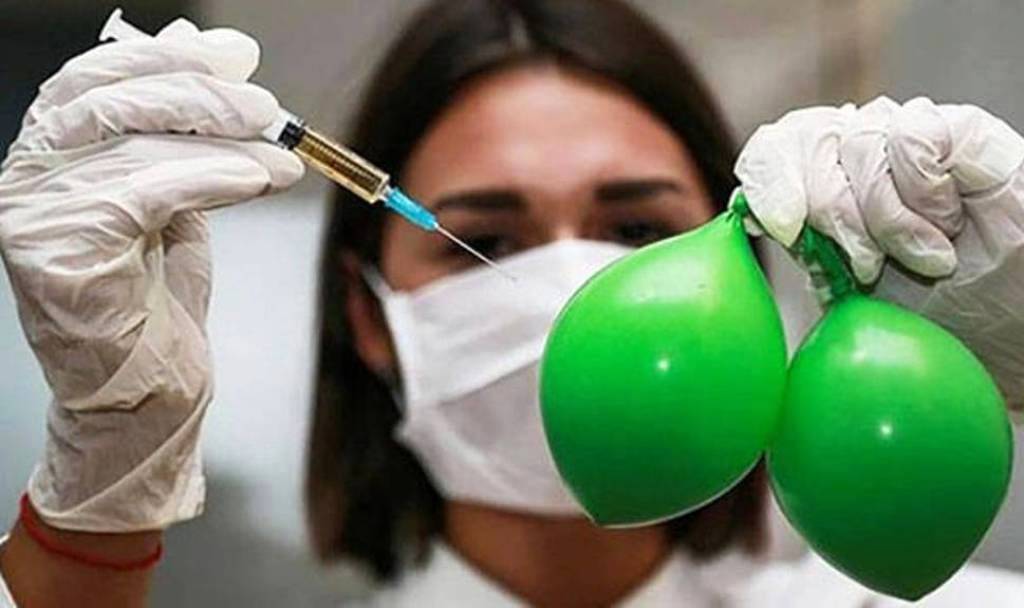Thailand Moves Closer to Chemical Castration of Sexual Offenders

Thailand’s lawmakers are poised to pass a law that would allow the chemical castration of sex criminals as a way to prevent their reoffending.
Several readings of the “Violence-Related Reoffending Prevention Bill” have already been completed in the House of Representatives.
The Senate is currently reviewing this more punitive approach to sexual offenses after it won overwhelming support from lawmakers in the legislature.
Chemical castration is not revolutionary. The system has been implemented in South Korea, Pakistan, Poland, and at least eight states in the United States. Other countries use surgical castration to deal with serious sexual criminals, such as Norway, Denmark, and Germany.
Why such drastic measures?
According to records from the Corrections Department, 1,037 convicted sex offenders reoffended during the first year after their release from jail. Over 1,700 reoffended within two years after their release, and 2,111 sexually violated victims within three years.
In Bangkok, a security guard raped a female resident earlier this year. Records show the rapist had previously served time for raping a teenager. He confessed to the crime while in police custody.
There was also the case of the criminal in Thailand dubbed “Jack the Ripper“. After killing five women in 2005 across several provinces, Somkid Pumpuang was arrested six days after the fifth murder. In early 2019, he was released, but seven months later he killed a 51-year-old hotel housekeeper he was dating.
“People pray that this will be the last incident of this kind, but it never is,” said Palang Pracharath MP Patcharin Samsiripong. “Should we keep living in fear?” asked the lawmaker, a leading supporter of the draft bill.
She earned a Ph.D. in criminology from Mahidol University after studying criminal justice at Sam Houston State University in the United States. The lawmaker has actively promoted the new bill in Parliament, claiming that it will prevent crimes.
An ex-victim of sexual crime, KongGuy Areyasakul, supports chemical castration as a means to prevent further abuse and to give victims justice.
KhangGuy, a well-known blogger, told Thai PBS, “It’s unfair to victims when their attackers are just fined or jailed.”
More than three-quarters of Thais (78%) agreed with chemical castration in an online survey conducted in 2020.
Chemical castration, what is it?
If the bill becomes law, convicted sex offenders will be given injections that will prevent them from reoffending – at least temporarily.
She explained that the castration would not be permanent.
Recently, Justice Minister Somsak Thepsuthin explained that convicts can be injected with certain drugs that lower their sexual urges, adding that the procedure will be conducted in accordance with medical standards.
Convicts subjected to chemical castration will get an injection every three months and be required to wear electronic monitoring devices. Each injection costs about 10,000 baht.
According to urologist Dr. Kampanart Pornyoskrai, chemical castration works by lowering the levels of testosterone in the sexual offender’s body.
Does it violate human rights?
According to Somsak, chemical castration won’t be administered without approval by two doctors, consent from the convict, and approval from the court.
“The process is not barbarous. This method is used in several countries,” the justice minister claimed.
According to Somsak, the bill is “progressive” and he hopes it will become law.
The draft law is important to us because we hope it will make Thai society safer,” he said.
A word of caution is in order
According to the director of the Women and Men Progressive Movement Foundation, chemical castration will not reduce sexual crimes.
The number of rapes has not dropped even though the penalty has been raised in 2019, according to Jadet Chaowilai.
He believes that sexual crimes are rooted in patriarchal attitudes. It is essential to not only focus on laws to address the root cause of the problem but to also change deeply entrenched patriarchal attitudes.
Researchers have found that the number of sexual crimes declines in countries that introduce castration as a punishment, whether surgical or chemical. However, this also gives rise to another problem – more rape victims have been killed, presumably because rapists fear being caught and castrated.
In addition, Kampanart noted that scapegoats could be convicted and castrated.
In addition, he pointed out that the tax burden is relatively high. For instance, in the UK, many Britons have expressed dissatisfaction with the cost of chemically castrating convicts.
What other solutions are there?
Jadet opposes the use of chemical castration for the reason that he believes other methods can be employed to prevent reoffending.
He said the Social Development and Human Security Ministry should conduct campaigns against sexual harassment and violation. He also suggested the Education Ministry promote gender equality at schools.
In addition, unwarranted touching or staring is also considered sexual harassment.
While public campaigns have helped to remove rape scenes from television soaps to some extent, variety shows continue to present sexually explicit acts that sometimes border on harassment.
“Comedians, for instance, touch women’s bodies or force them to sit on their laps. It’s important to control such content,” he added.
Moreover, as a result of primitive attitudes, there is a risk of sexual harassment for women and girls.
Hotlines and response procedures for complaints should also be improved. Despite some channels existing, few victims actually file complaints because they are skeptical they will receive any assistance,” Jadet said.
He said the country must change the definition of rape in order to effectively control sexual crimes. As of now, Thai law only considers rape a crime when sexual organs are involved.
“These laws fail to recognize the plight of LGBT [lesbian, gay, bisexual, and transgender] people,” he said.
Finally, Jadet recommended that the Corrections Department strive to change convicts’ behavior while they are behind bars. Upon being released from jail, they must change their attitude in order to behave better.
“At present, convicts only feel angry and vengeful behind bars,” he continued.






























